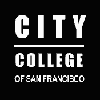
There is no try!
College and Career Education
Day 9 Lecture Notes
[ Class Home ] [ Homework Assignments ] [ Helpful Links ]
Tracey Kobayashi
50 Phelan Ave, NGYM
San Francisco, CA 94112
(415)452-7311
tkobayas@ccsf.edu
PE 9A: Fit or Fat
College & Career Ed
PE 50: Fitness Center

IM Me!
AIM - TKatCCSF
Yahoo - tkobico
ICQ - 155909399
Personal Finance
Planning for Your Future, cont.
You know your spending patterns, you have a budget, now...how DO you balance that checkbook?!? And Why?
- Assure your records match the bank's.
- In the rare instance the bank errs, you typically only have 60 days to inform them.
- If you made an error, you'll find it!
- Helps you track what's in your account so you don't bounce checks and incur fees, which can be as high as $25.
- Allows you to find errors quickly.
Download the bank balance worksheet to help you start. Then follow along with me in class.
Get A Job!
The first step in job hunting (whether as a student or after you're finished with school) is...you guessed it...a self assessment! This is where those values and skills worksheets come in handy. Your values and interests determine should play a role in the type of work you do, such as...
- working with objects
- working with people
- working in an office
- scientific or technical studies
- routine/repetitive activities
- abstract/creative work
- helping others
- working with machines
- working for recognition/prestige
- seeing concrete results of your work
Your skills are what you actually have to offer a potential employer:
- ability to understand and use words well
- ability to do arithmetic quickly and accurately
- ability to see details
- ability to make precise movements quickly
- ability to coordinate hand and foot movements with what you see
- ability to work well as a team member
- ability to work well independently
- ability to take and defend a position
Don't forget to refer to those lists you worked on! Now that you've considered what you want and what you can do, let's look at what employers want, because you'd be surprised. They generally aren't looking for the best students with the most activities. They ARE looking for people who show commitment and interest in the position, who can follow instructions, and are reliable...
- Commitment: the average college graduate stays with his/her first employer 9 months, which costs a lot of money in training new hires. The hiring manager for a consulting firm here in the city stressed to me that talent combined with passion (or at least genuine interest in the job) can make up for lack of experience.
- Interest/Commitment: display a true interest in the industry, the job function itself, and the particular employer. Intelligently discuss current trends in the industry. Tailoring your resume and cover letter to the position instead of a canned package go a long way. Stress a small number of extracurricular activities you pursued for an extended period, rather than ones you jumped between after a short amount of time -- one activity you spent a lot of time and energy doing and made progress in will carry more weight than many activities you were only somewhat involved in.
- Have Direction: show particular interests and career direction. Also, show you have a realistic feeling for the job duties, you understand its pluses and minuses, and made the realistic assessment that its something you would enjoy for a substantial period.
- Maturity and Confidence: many young graduates don't come across as mature and confident enough for the professional world. This judgement is often made based on a brief interview1
- Professionalism: best defined as the ability to fit in to a given
work group, adhering to their standards of communication, dress and conduct.
Generally:
- Make sure your resume follows an accepted format. The president of the abovementioned company also stresses that you check your spelling and grammar!
- Ditto on the cover letter.
- Dress in such a way that you will fit in. Dress neatly and appropriately for your interview, but don't dress better than the hiring manager.
- Follow the instructions for application precisely. If you respond incorrectly to the job posting, forget to submit something, or submit something in the wrong format, that is often grounds to terminate your application, particularly if you're applying to a large firm...your file wont get past HR and to the hiring manager.
- Businesses are emphasizing that students need the "soft" skills to work in the day-to-day: persistence; good attendance; speaking; listening; promptness...
- Adaptability: can you grow within the company? Convey that you are capable of adapting to new positions within the company and can handle responsiblity.
Before you go beating on doors, begging for jobs, take some time to research potential jobs. Ask to interview someone in a similar position to the one you want. Some lines of questioning...
- Introduce yourself and give them your background. Bring a copy of your resume and ask their impression, what needs work.
- Job requirements: experience, education and skills needed. Crossover skills from other similar jobs.
- Best way to move into that type of position, if it's a relatively skilled/professional position.
- Current state of those types of positions -- available jobs, growth.
- Benefits and opportunities for advancement associated with the position.
- Time commitments outside normal schedule -- work at home or on vacation?
- Day in the life: work environment; typical schedule.
- Esoterics: greatest satisfaction; greatest challenge.
I didn't mention this in the lecture, but keep this on an informational level. Don't ask for a job. Your goal is to find out about the industry and to form a network of people who are willing to guide and help you.
Don't forget to send thanks and promise to follow up on leads. Send a thank you note within one or two days. Follow up periodically with everyone in your network -- even after you get a job -- it's important to maintain your contacts, so they move from being an informational to a support network throughout your career.
[ Day 1 ] [ Day 2 ] [ Day 3 ] [ Day 4 ] [ Day 5 ]
[ Day6-7 ] [ Day 8 ] [ Day 9 ] [ Day 10 ]
[ Day 11 ] [ Day 12 ] [ Day 14 ]
Information in this section © 2005 Tracey Kobayashi, unless otherwise noted.